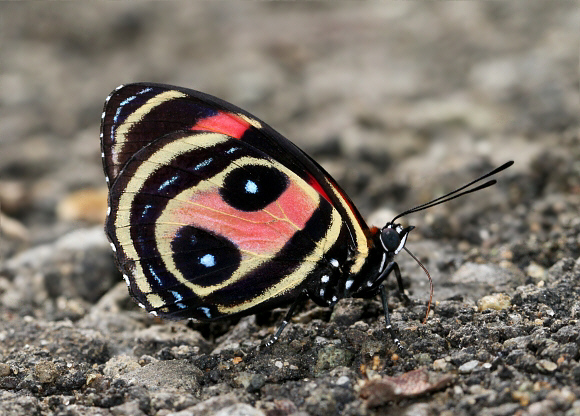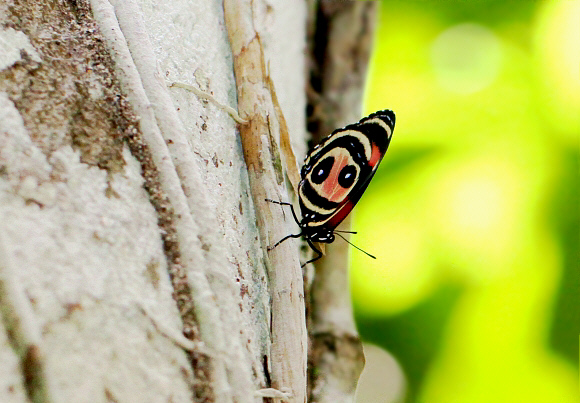 Callicore pitheas, Rio Claro, Colombia – Adrian Hoskins
Callicore pitheas, Rio Claro, Colombia – Adrian Hoskins
Introduction
There are 20 known species in the genus Callicore, all of which bear distinctive and graphic patterns on the underside hindwings, often resembling numbers or letters of the alphabet.
The easily caught mud-puddling males of many Callicore species are killed in vast numbers for their wings which are used by the souvenir trade for the production of decorated plates, jewellery, place mats and other trivia. Although this practice is abhorrent to naturalists it probably has little effect on population dynamics, as the males will have already mated and passed on their genes. Females are more difficult to capture, so are usually able to fulfil their egg-laying potential.
Callicore pitheas is distributed from Mexico to Ecuador.
 Callicore pitheas, Rio Claro, Colombia – Adrian Hoskins
Callicore pitheas, Rio Claro, Colombia – Adrian Hoskins
Habitats
This species inhabits lowland rainforest and Andean foothills at altitudes between about 100-600m.
Lifecycle
I have no information specific to pitheas. In most Callicore species the eggs are white, and are laid singly on Serjania, Allophylus or other Sapindaceae.
Adult behaviour
The butterflies have a rapid and powerful flight over short distances. They are usually encountered as solitary males, visiting river beaches where they imbibe dissolved minerals from urine-soaked ground. Callicore pitheas is particularly fond of settling on tree trunks or vines at a height of between 3-6m above ground level, and retreats to such positions if disturbed.

Callicore pitheas, Rio Claro, Colombia – Adrian Hoskins
